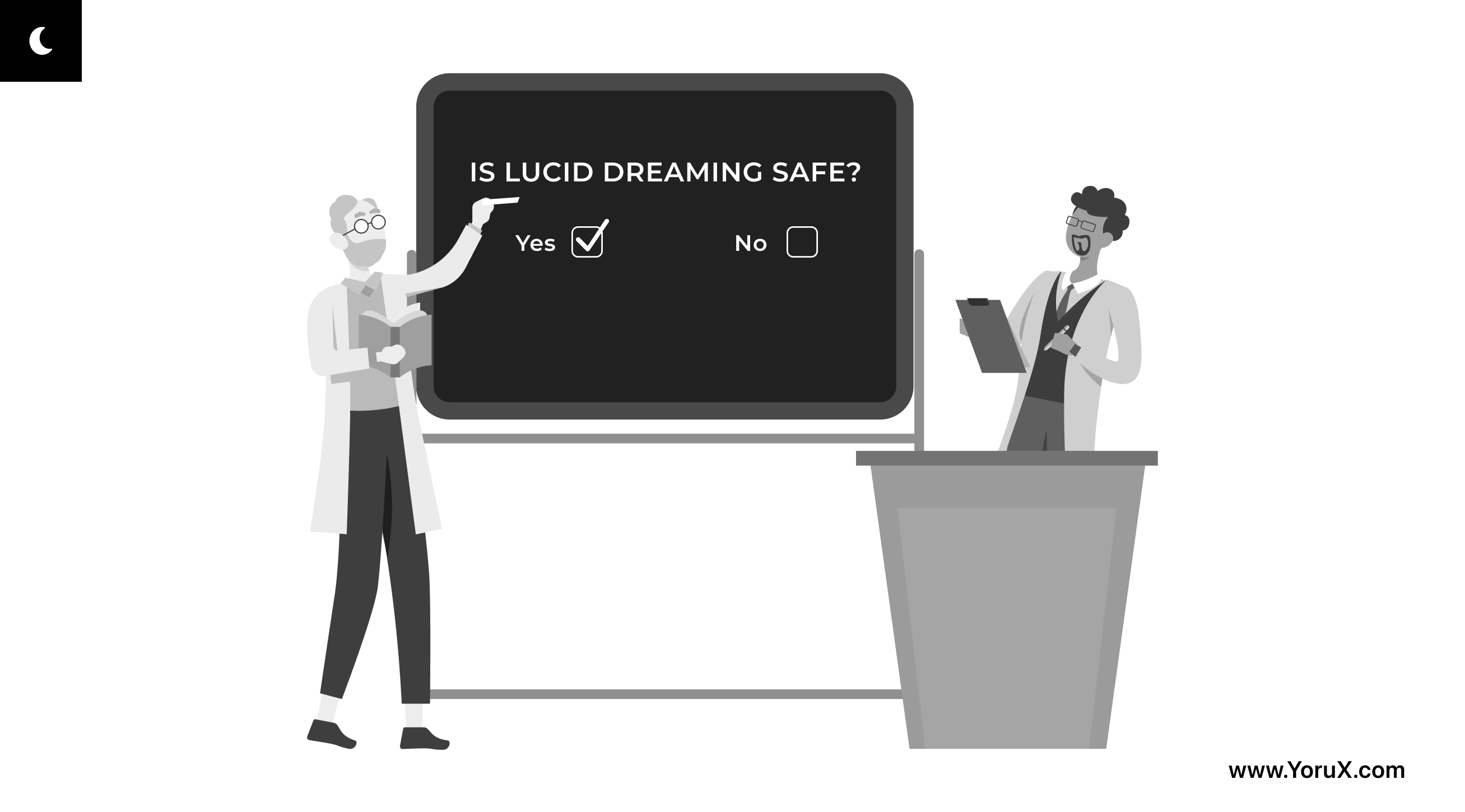
Lucid dreams are fascinating, uplifting, and empowering experiences with a number of benefits supported by scientific research. Yet, as an old adage says, anything that can heal might also do harm. Thus, a relevant question arises for many aspiring lucid dreamers: can lucid dreaming be dangerous or harmful?
A new study tackled this question by looking into a range of possible adverse effects of lucid dreaming, including sleep quality, disconnection from reality, and mental well-being. The results from nearly five hundred participants, of whom 94 % were lucid dreamers, have just been published in the scientific journal Psychology of Consciousness: Theory, Research, and Practice [1].
So what were the findings? More frequent lucid dreamers do not appear to have poorer sleep quality. Instead, they reported better subjective sleep quality over the night and better functioning during the day. More frequent lucid dreamers were not disconnected from reality more often and had fewer memory disturbances. Yet, they scored higher on the derealization scale – feeling like in a dream or perceiving things as strange or not real. At first glance, this may look a bit like a disconnection from reality. However, it may also signify a deeper insight into the nature of reality. After all, the most established tradition of lucid dreaming – Tibetan dream yoga – considers both dreaming and waking realities as equally imaginary, and one of its key practices is to treat all waking experiences during the day as a dream [2].
More frequent lucid dreaming was also associated with greater subjective well-being and fewer feelings of loneliness and social isolation. As the standardized questionnaires cannot capture all the aspects of subjective experiences, the lucid dreamers were given an open-ended question to report any negative consequences of lucid dreaming that they have noticed over time. The vast majority of lucid dreamers (79%) have not observed or reported any, supporting the key findings of the study that lucid dreaming does not appear to have any evident detrimental effects.
Among other findings, the study established links between lucid dreaming and other sleep-related experiences – sleep paralysis, false awakenings, out of body experiences – indicating that they are all interrelated. When asked about the emotional tone of lucid dreams, the lucid dreamers reported that two-thirds of their lucid dreams are emotionally positive experiences, and only 10% are emotionally negative. The negative ones are more likely to happen to women and those who have nightmares more frequently; they also occur spontaneously – deliberately induced lucid dreams (via techniques) tend to be more emotionally positive.
Overall, the findings of the new study indicate that lucid dreaming appears to be a relatively safe method to engage with the dream while being asleep, without any evident detrimental effects on sleep and mental health. Four out of five lucid dreamers do not perceive any negative consequences of lucid dreaming.
However, it should be noted that some effects may not be noticeable or captured by standardized questionnaires, so further research is needed, especially observing a group of lucid dreamers over a longer period of time. Previous research indicates that intense preoccupation with lucid dream induction techniques might result in certain detrimental effects on sleep quality and mental health for some people [3], and while this trend was not observed in the new study, it might still be a good idea to approach lucid dreaming with a relaxed attitude and not be too demanding on yourself and your efforts.
[1] Stumbrys, T. (2021). Dispelling the shadows of the lucid night: An exploration of potential adverse effects of lucid dreaming. Psychology of Consciousness: Theory, Research, and Practice. Advance online publication. https://doi.org/10.1037/cns0000288
[2] Wangyal, T. (1998). The Tibetan yogas of dream and sleep. Snow Lion Publications.
[3] Aviram, L., & Soffer-Dudek, N. (2018). Lucid dreaming: Intensity, but not frequency, is inversely related to psychopathology. Frontiers in Psychology, 9, Article 384. https://doi.org/10.3389/fpsyg.2018.00384


.png)

